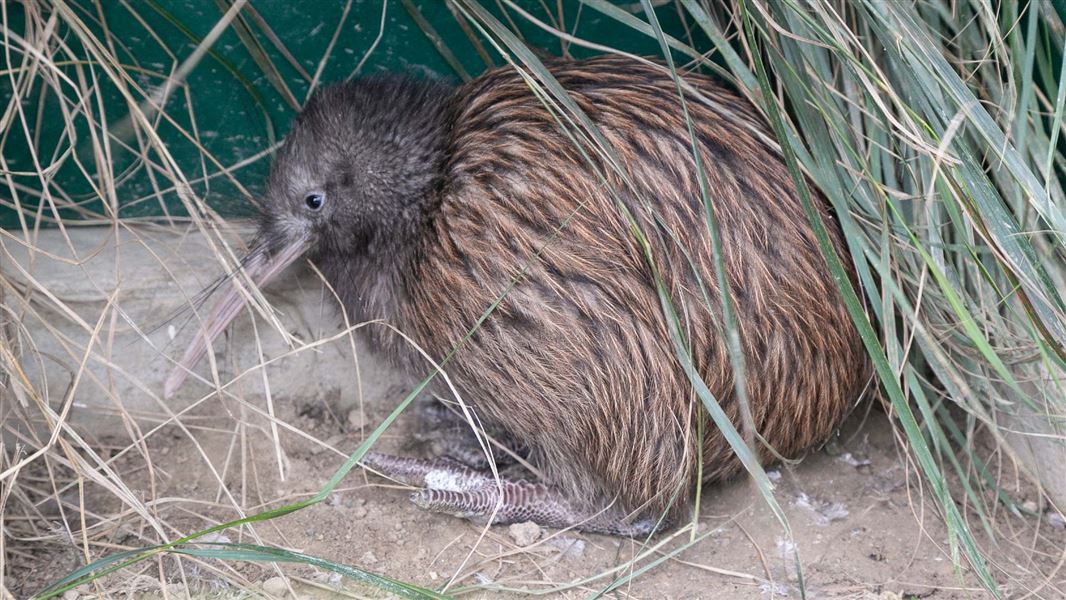Archived content: This media release was accurate on the date of publication.
Date: 16 December 2020
The male kiwi was found trapped in the roadside culvert in August, exhausted and emaciated from his ordeal – and having lost skin and bone tissue from repeated attempts to climb out of the culvert. He was thought to have been in the culvert for several weeks before he was discovered.
His plight was discovered by Downer roading inspectors Logan Turner and Isaak Ryan, who reported their find to DOC.
Responding to the call, DOC Ranger Alison Evans climbed into the culvert and retrieved the battered bird. He was transported to Massey University’s Wildbase Hospital, in Palmerston North, for what has become a three-month rehabilitation.
Pauline Nijman, Wildbase Hospital and Recovery Supervisor, says the unnamed bird’s recovery has been remarkable.
“We were all a little scared to hope at the start – he has surprised us all,” she says.
After several weeks of treatment at Wildbase Hospital, the kiwi was transferred to the nearby Central Energy Trust Wildbase Recovery Centre – a specialist facility with large aviaries for rehabilitating native birds.
He is housed in a 6m by 10m enclosure, and although he is on public display, his nocturnal lifestyle means he’s not seen during the day. Footage of the bird captured at night has been shown on a screen next to the enclosure.
Pauline Nijman says the bird has bulked up quite a bit since his arrival: “He came in at about 900 grams, and now he weighs about 1.4kg. Regular feeding is offset by an enclosure large enough for him to exercise in, so he doesn’t get too big.”
The tissue covering the bones forming his claws has grown back, as have his nails.
“Everything we hoped would happen has happened.”
Pauline Nijman says the bird is still pretty wild – he is only handled by humans once a week for the examination of his nails to ensure his recovery continues.
Staff who have been nurturing the animal are incredibly pleased by his progress, and prospects for his release look positive: “His behaviour is very promising.”
Alison Evans paid tribute to the staff involved in the “fantastic achievement” of rehabilitating the bird.
"When I lifted him out of the cold dark culvert, he seemed so light and fragile. It is very heart-warming to see him looking so plucky and ready to enjoy life in the forest."
"What fantastic mahi by all those caring for him at Wildbase."
Logan Turner says he would never have guessed he and his colleague would find a little kiwi down in a culvert.
“We were so surprised to see the little guy down there! We wish him all the best for the future at his new home.”
Pauline Nijman says the pre-Christmas release of the bird is a festive fairytale: “This is the feel-good story of the year. It’s quite bitter-sweet – we’ll release him but we’re never likely to see him again.”
The kiwi will be released into the Sanctuary Mountain Maungatautari ecological restoration project in South Waikato this Thursday. He will add to the thriving population of kiwi in the 3400 hectare pest-free sanctuary, which contains large pockets of old growth forest surrounded by a predator fence.
Members of the public who discover wildlife under stress or in situations where the animal is at risk should call 0800 DOC HOT.
Contact
For media enquiries contact:
Email: media@doc.govt.nz
